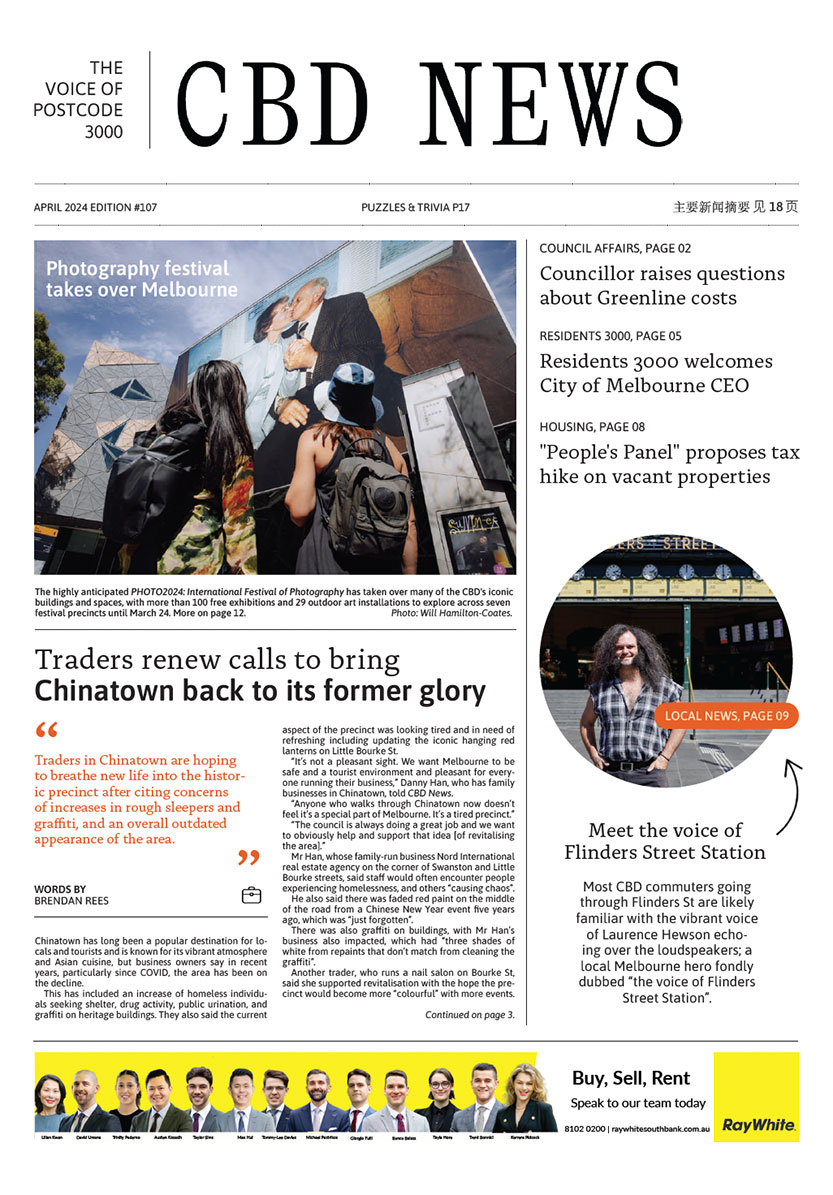Building the city we deserve
By Rhonda Dredge
When Jax Jacki Brown arrived at the town hall for Broadside, the unashamedly feminist festival last month, she wasn’t expecting to be marginalised. Afterall, she was on one of the panels.
The outspoken campaigner was told by ushers at the venue to sit in an area for the disabled.
She objected because she wanted to sit with her friends.
The ushers persisted so she sent out a message on Twitter which provoked a lot of support.
“I was told to sit in a special spot by myself in case of emergency,” said the disability rights campaigner, who makes quite an impact in her wheelchair but isn’t about to be typecast.
The Twitter campaign worked and the staff got in contact with her. Jax was able to sit in the main part of the town hall.
Her experience is not an indictment of the City of Melbourne, some of whose employees were at the festival to pick up new ideas.
But the incident was typical of the way gatekeepers feel they have to apply rules and regulations instead of listening to the people in front of them.
“Disabled bodies are often policed and regulated,” Jax said. She always asks herself the question: “What extra work will I have to do to get into that building?”
The festival is the brainchild of the Wheeler Centre, known for its care of the individual and the session Building the City We Deserve dealt with ways public space can feel threatening, forcing humans to adjust, rather than the other way around.
The politics of exclusion is a potent topic and speakers at the festival listed CCTV cameras, policing, over-protective policies and criminalisation as some of the factors that needed to be sorted before a city could feel right for marginalised people.
Nicole Kalms from Monash University reported on a study of 21,000 young women in five continents which showed that 47 per cent of women have trouble returning to a place in which they’ve had a bad experience and 12 per cent will not return at all.
“The way we carry internal geographies of a city we will not go to or actively avoid are shaping our whole life access,” she told the session.
This has implications for the way women move around a city. If they’ve had trouble on public transport that means they use cars all the time and leave work early.
She said employers have to deal with how often they have to order Ubers and consider employee safety after dark.
The university is working with six councils to deal with hot spots, such as Flinders Street Station and King St.
Many of the problems are related to public attitudes rather than street lighting.
“I want to shape the cultural perspective,” Jax said. “When they (the public) meet you on the street they have a cultural stereotype in their head. They ask: what’s wrong with you?”
“If you’ve had a tragedy, they want you to get it off your chest. I don’t want to give an educational moment. Why not ask my name or about my shirt?”
Jax has a stay-at-home partner and a child and thinks of herself as the breadwinner. She says there are still not enough raised platforms on the tram network.
“There’s extra strain put on my body as I go out to work,” she said.
Speakers on behalf of sex workers, First Nations, women and disabled people joined forces to criticise the way they are treated in public spaces.
Sex workers have to register with the government and are managed by the police while First Nations people don’t even feel safe crossing a road, said Caroline Martin, a Boonwurrung matriarch.
“I come from the strongest warriors of this country,” she said. “People should put in the mileage and find out about us.”

Backloading across borders with Transcorp – navigating interstate moves with ease



 Download the Latest Edition
Download the Latest Edition